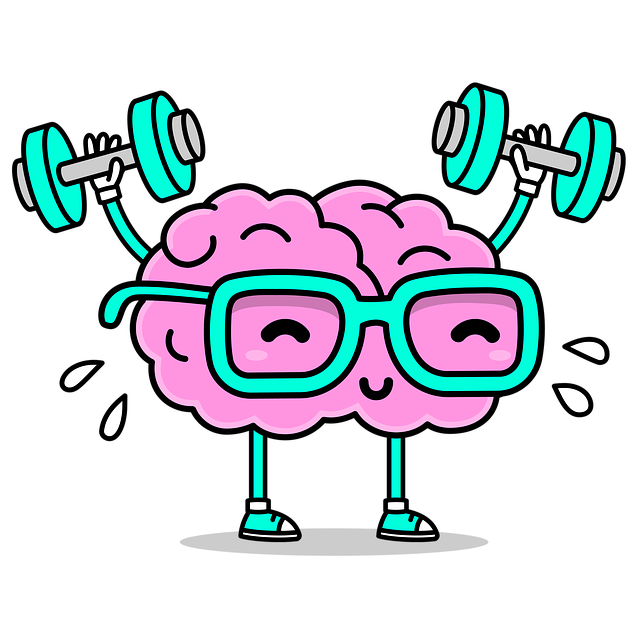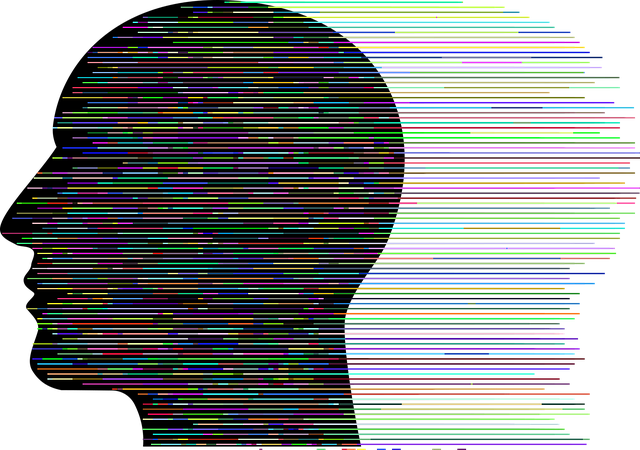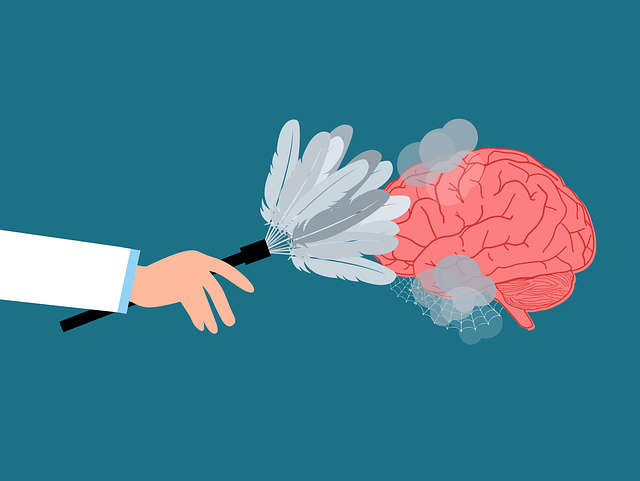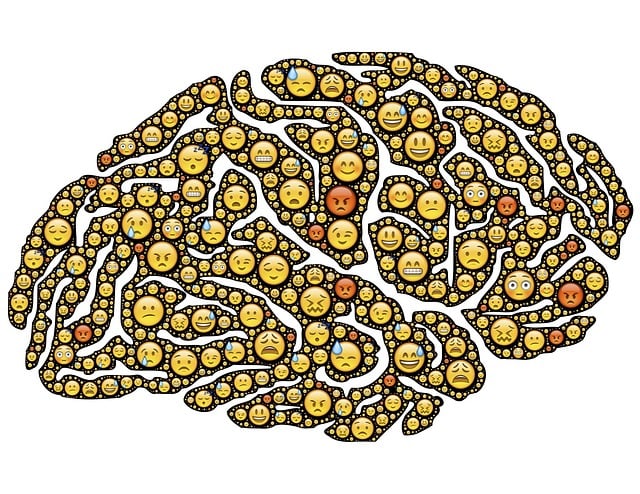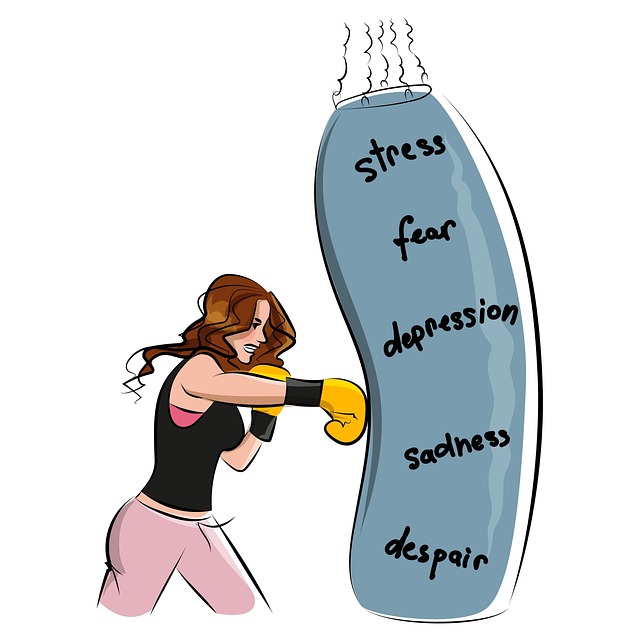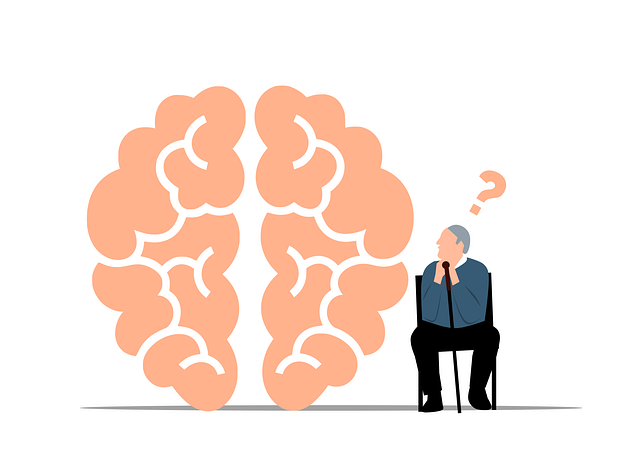Mental wellness self-assessment tools are vital for identifying and addressing emotional challenges among young adults, offering insights through techniques like EMDR (Eye Movement Desensitization and Reprocessing), proven effective in treating trauma and depression. Cultural sensitivity ensures tailored support for diverse backgrounds, while early identification strategies prevent severe mental health complications. Integrating EMDR into self-assessments enhances comprehensive evaluations, enabling personalized interventions and increased self-awareness. Making these assessments accessible through online platforms and apps promotes early intervention, addressing unique challenges like academic pressures and social media influences. This approach fosters Self-Care Routine Development and empowers young adults to take charge of their emotional well-being, with cultural sensitivity ensuring tailored support for diverse needs.
Mental wellness self-assessment tools play a pivotal role in empowering young adults to take charge of their mental health. This article delves into the significance of such assessments, highlighting why they are crucial for early intervention and prevention. We explore effective strategies, including the integration of EMDR (Eye Movement Desensitization and Reprocessing) techniques, to develop comprehensive self-assessment frameworks tailored to the unique needs of young adults. By understanding the challenges and implementing accessible solutions, we aim to enhance therapy options for this vulnerable population, focusing on EMDR as a game-changer in mental health care.
- Understanding Mental Wellness Self-Assessment: Why It Matters for Young Adults
- The Role of EMDR (Eye Movement Desensitization and Reprocessing) in Therapy
- Developing Effective Self-Assessment Tools: Key Components
- Integrating EMDR Techniques into Self-Assessment Frameworks
- Implementation and Challenges: Making Self-Assessments Accessible to Young Adults
Understanding Mental Wellness Self-Assessment: Why It Matters for Young Adults

Mental wellness self-assessment tools play a pivotal role in identifying and addressing issues among young adults, many of whom may be navigating their first experiences with emotional challenges. These assessments provide an initial glimpse into mental health landscapes, offering valuable insights for both individuals and professionals. By utilizing effective self-assessment methods, young adults can gain better understanding of their emotional well-being and take proactive steps towards healing.
For instance, tools incorporating elements of EMDR (Eye Movement Desensitization and Reprocessing) have proven beneficial in treating trauma and depression among this demographic. Beyond assessment, these strategies foster communication skills crucial for navigating mental health conversations. Cultural sensitivity in mental healthcare practice is also integral to ensuring young adults from diverse backgrounds feel understood and receive tailored support. Depression prevention, when incorporated into self-assessment, can help identify at-risk individuals early on, potentially preventing more severe complications.
The Role of EMDR (Eye Movement Desensitization and Reprocessing) in Therapy

EMDR (Eye Movement Desensitization and Reprocessing) has emerged as a powerful therapy for young adults grappling with trauma and mental health issues like anxiety relief. This innovative approach facilitates emotional regulation by helping individuals process and resolve distressing memories, thoughts, or feelings. During EMDR therapy sessions, clients focus on specific traumatic events while engaging in bilateral stimulation techniques, often through side-to-side eye movements, tapping, or auditory tones. This reprocessing process allows the brain to unlock and integrate painful memories, reducing their intensity and associated triggers.
The integration of EMDR in therapy for young adults is significant, given their unique challenges and the growing public awareness campaigns development around mental wellness. By providing effective tools for anxiety relief and emotional management, EMDR can help young adults navigate and overcome their struggles more effectively. This therapeutic method not only aids in healing but also empowers individuals to foster resilience and improve overall well-being.
Developing Effective Self-Assessment Tools: Key Components

Effective self-assessment tools for mental wellness are crucial components in therapy for young adults, particularly when integrating techniques like EMDR (Eye Movement Desensitization and Reprocessing). These tools serve as gateways to personalized care, enabling individuals to actively participate in their therapeutic journey. A robust self-assessment should encompass several key elements. Firstly, it must facilitate a comprehensive exploration of the individual’s emotional landscape, encouraging them to identify and articulate their feelings honestly. This can be achieved through open-ended questions that prompt reflection on current mental health states and historical experiences.
Additionally, these tools should promote self-awareness by guiding users to recognize patterns in their thoughts and behaviors. Incorporating resilience-building exercises alongside stress management techniques can empower young adults to develop coping strategies tailored to their unique needs. The integration of community outreach program implementation also proves beneficial, fostering a sense of belonging and support that enhances overall mental wellness.
Integrating EMDR Techniques into Self-Assessment Frameworks

Integrating EMDR techniques into self-assessment frameworks offers a promising approach for young adults seeking therapy. Eye Movement Desensitization and Reprocessing (EMDR) is an evidence-based treatment recognized for its effectiveness in addressing trauma, a prevalent concern among this demographic. By incorporating EMDR into self-assessment tools, professionals can create more comprehensive and nuanced evaluations, allowing for tailored interventions. This integration enables young adults to actively engage in their mental wellness journey by providing them with valuable insights and coping mechanisms.
Self-assessment exercises, combined with EMDR, foster increased self-awareness, which is crucial for early intervention. Public awareness campaigns development can further highlight the benefits of these techniques, encouraging more individuals to proactively seek support. Moreover, risk assessment for mental health professionals becomes easier as they gain access to a broader spectrum of information, enabling them to offer suitable therapy types like EMDR, and ultimately contribute to improved outcomes for young adults’ mental health.
Implementation and Challenges: Making Self-Assessments Accessible to Young Adults

Making self-assessments accessible to young adults is a significant step in promoting mental wellness and early intervention. This demographic often faces unique challenges, including navigating academic pressures, social media influences, and the transition into adulthood. Developing user-friendly tools that resonate with their experiences can encourage self-reflection and prompt them to seek necessary support. Online platforms and mobile applications have proven effective in this regard, offering discreet and accessible ways for young adults to assess their mental health and well-being.
Therapy for Young Adults, such as Eye Movement Desensitization and Reprocessing (EMDR), has gained prominence in addressing trauma and its impact on mental wellness. Incorporating these therapeutic techniques into self-assessment tools can provide valuable insights and serve as a gateway to Trauma Support Services. Moreover, promoting Self-Care Routine Development for Better Mental Health through interactive apps or online communities can foster a sense of empowerment, enabling young adults to take charge of their emotional well-being. Effective implementation ensures that these tools are not only accessible but also culturally sensitive, addressing diverse needs and experiences within this demographic.
Mental wellness self-assessment tools, enriched by techniques like EMDR, offer a promising approach to support therapy for young adults. By incorporating key components such as interactive questionnaires and structured discussions, these tools can help individuals gain valuable insights into their mental health. As we navigate the challenges of accessibility, it’s crucial to make these resources widely available, ensuring that young adults have the means to proactively manage their emotional well-being. With continued development and research, self-assessment frameworks combining EMDR therapy can revolutionize how we approach mental wellness, empowering a new generation to thrive.

